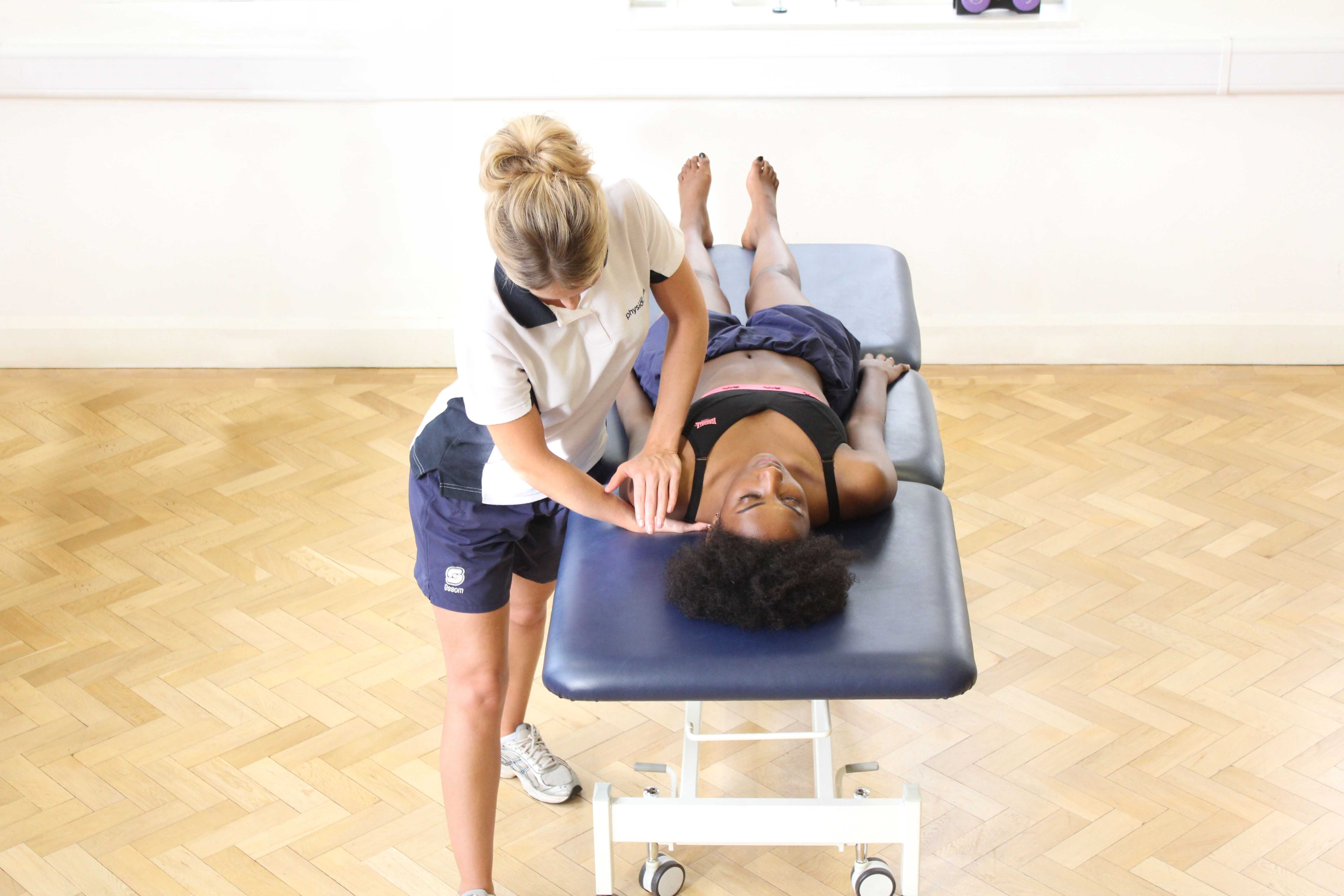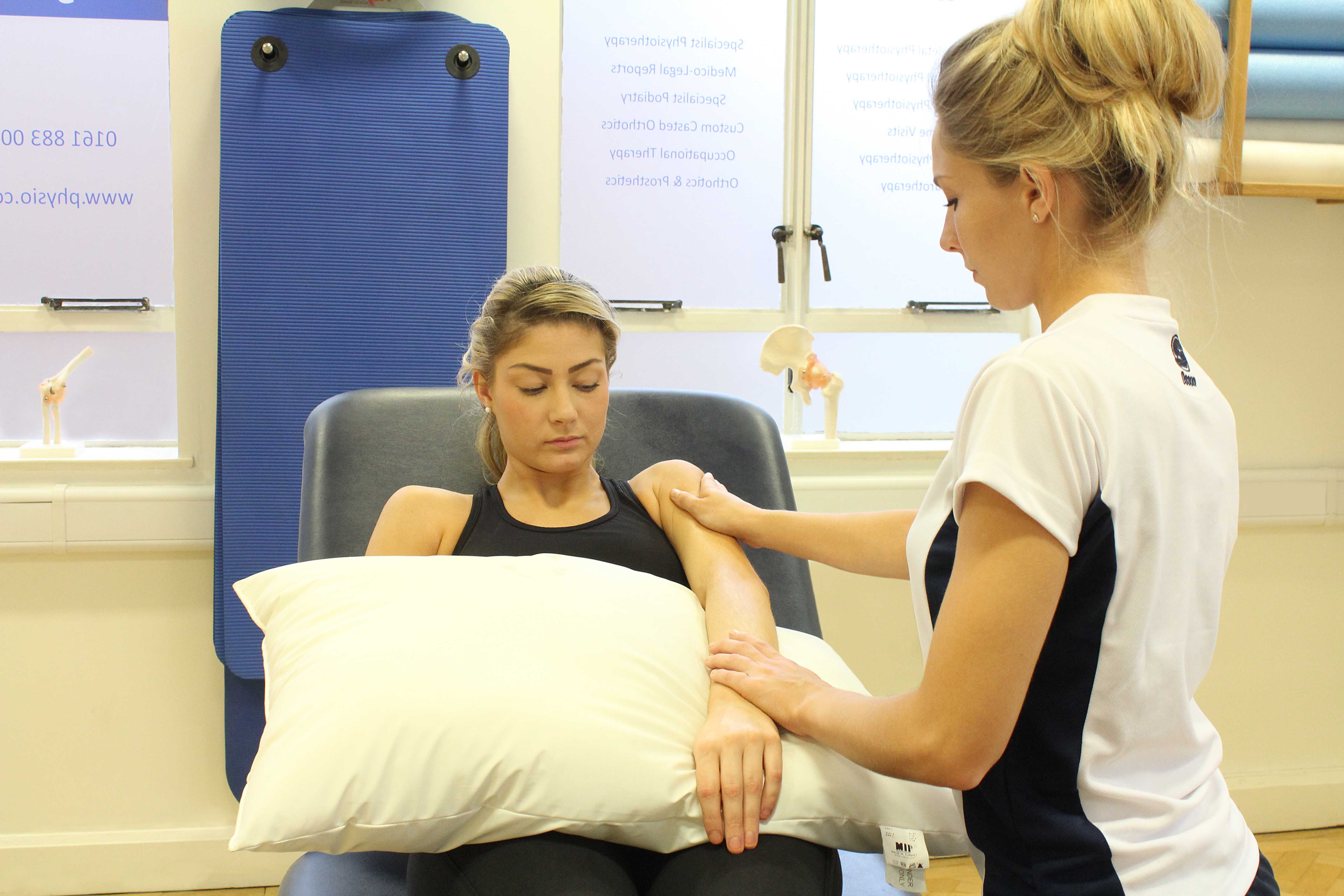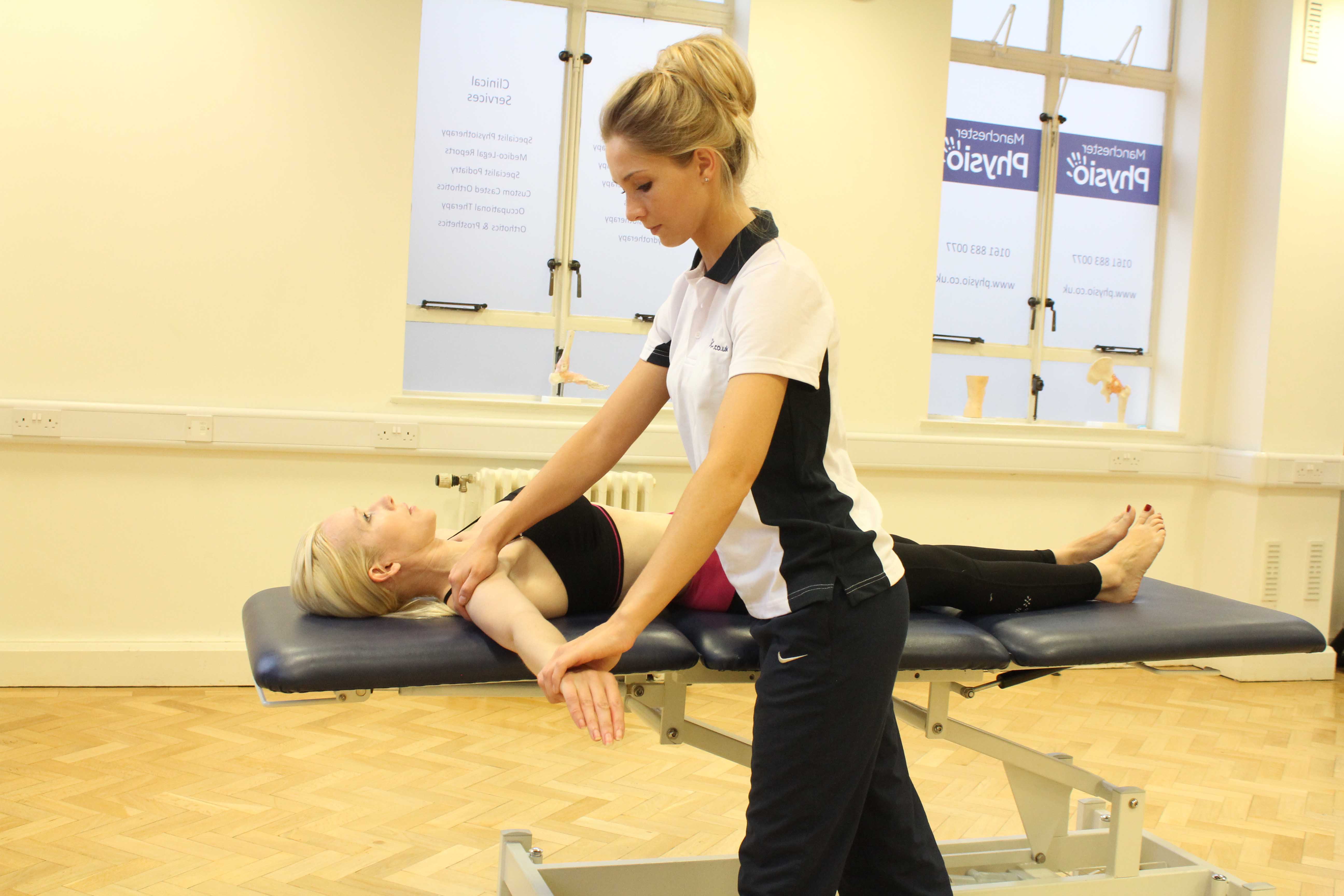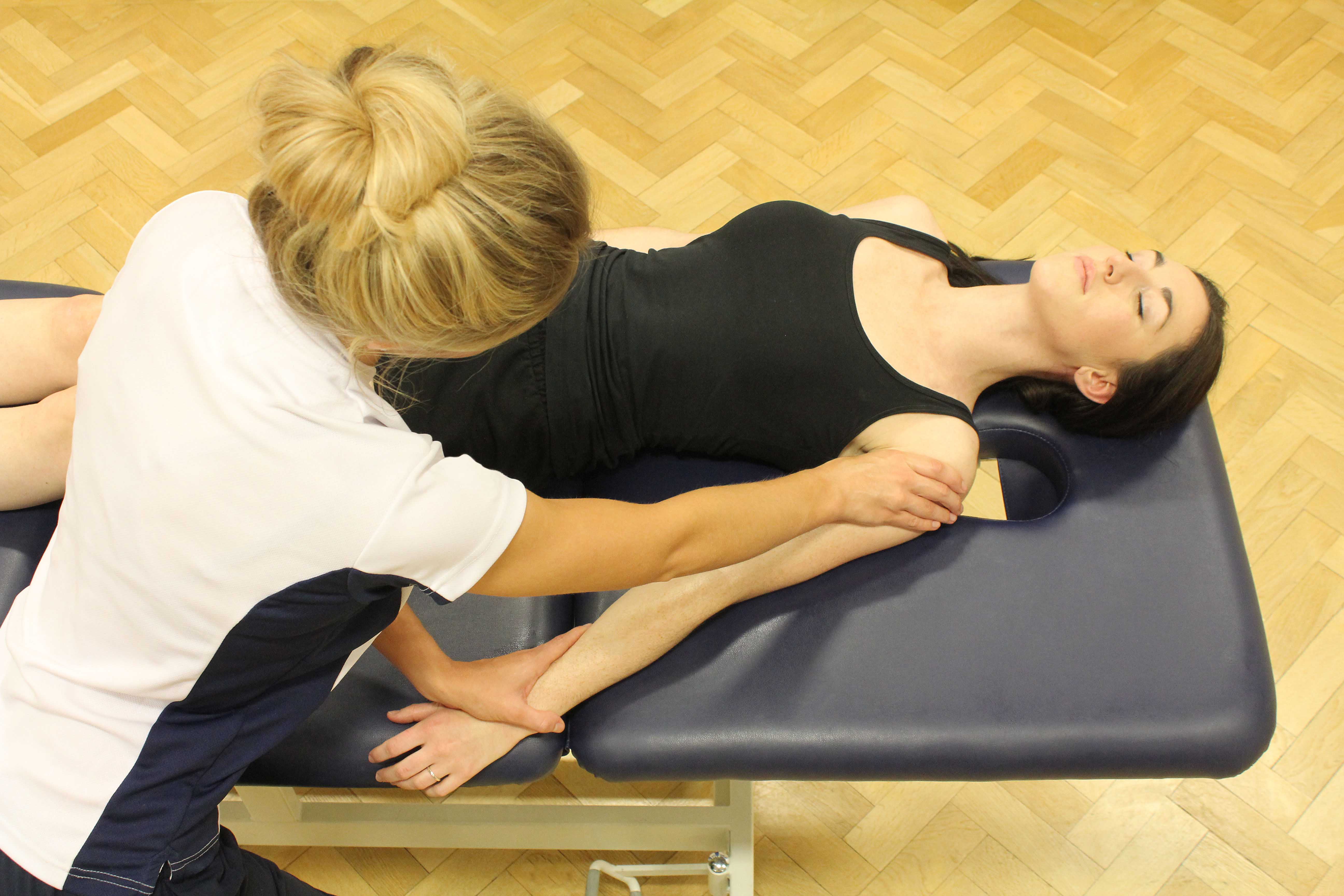Fixation of a FracturedHumeral Shaft
Fractured humeral shaft fixation surgery is aprocedure performed when you have broken the shaft of your humerus (arm bone). The majority of humeral fractures occur at the surgical neck of the bone, nearest the shoulder. Mid shaft humeral fractures are usually a result of direct trauma in younger people. In the elderly, the most common mechanism for fractures is a fall from standing. People often present with arm pain, swelling and damage to the surrounding soft tissue.
Most humeral shaft fractures are successfully managed non-operatively using a functional brace with a collar and cuff. Fixation of the humeral shaft is often required when the bone is displaced (bones separated from each other).
Surgery for a fractured humeral shaft involves realigning the fractured bone through an incision into the skin and muscle. This is then secured into place usinga plate or screws. This procedure is called open reduction, internal fixation.Indications for surgery will depend on severity of fracture, age and health of patient and time from injury to treatment.
Physiotherapy treatment following fixation of the humeral shaft is important as it will help you restore and regain functional use of your arm and get you back to a level you were previously as soon as possible.
 Above: Soft tissue massage of the tricep muscle of the upper arm
Above: Soft tissue massage of the tricep muscle of the upper armPhysiotherapy prior toFixation of a Fractured Humerus
Physiotherapy will help prepare your arm before your surgery and aid your recovery. Physiotherapy will also advise you on how to manage your immediate symptoms and what to expect following your operation. Treatments offered may include:
- Ice
- Gentle range of movement exercises
- Protective Taping and bracing
- Advice on surgery and post-surgical management
Symptoms following Fixation of a Fractured Humerus
Following your surgery you will experience some pain, swelling, bruising and stiffness. Your arm will then be placed in to functional brace to protect your arm and limitthe amount of movement.
Physiotherapy after Fixation of a Fractured Humerus
Physiotherapy treatment at Physio.co.uk will ensure you get the most out of your surgery so that you regain your range of movement, muscle strength and function in a safe and effective way. Physio.co.uk will provide individualised assessment and treatment following your surgery to maximise your potential and improve your quality of life.
 Above: Soft tissue massage of the biceps and deltoids of the upper arm
Above: Soft tissue massage of the biceps and deltoids of the upper armWeeks 1-3
During the initial stage of your treatment, your physiotherapist at Physio.co.uk will concentrate on reducing your acute symptoms. Treatment will include:
- Ice
- Pain Management
- Gentle passive and active exercises for elbow, wrist and hand
- Postural awareness
- Scapular setting exercises
- Wound and brace management
- Advice and education
Weeks 4-6
After your 4th week you will be weaned off your brace to encourage more movement of your arm to improve flexibility and reduce stiffness. Strengthening exercises will also be introduced to increase your independence with functional tasks. Physio.co.uk will develop an exercise programme specific to your personal requirements involving goals so that you reach your target potential. Treatment will include:
- Active-assisted and active range of movement
- Continuation of passive range of movement
- Isometric strengthening of the shoulder and wrist
- Scapular setting
- Joint mobilisations
- Proprioceptive training (increasing awareness of your arm in space)
- Scar management
 Above: Passive stretch of muscles and connective tissue of the uppper arm
Above: Passive stretch of muscles and connective tissue of the uppper armWeeks 7-12
Your physiotherapist at this stage of your recovery will progress your exercises making them functional and task specific so that you continue to make significant improvements. Treatment will consist of:
- Increased active and passive range of movement to attain full range
- Stretching soft tissue
- Muscle strengthening around the shoulder, forearm and wrist
- Soft tissue massage
- Joint mobilisation
- Increased proprioceptive training
- Encourage functional activities
Weeks 12+
At this stage of your recovery you will see improvements in your range of movement and strength. Physiotherapy treatment at this stage will continue to maximise the use of your arm, making treatment functional. Your physiotherapist will also advise you how to manage in the long term. Treatment will include:
- Attainment of full range of movement
- Advanced strengthening through range
- Advanced proprioceptive exercises
- Functional training
- Long term management
 Above: Soft tissue massage of the biceps and deltoids of the upper arm
Above: Soft tissue massage of the biceps and deltoids of the upper armPhysiotherapy treatment is an essential component of rehabilitation and Physio.co.uk will provide a structured treatment programme, tailored to your needs to ensure the full recovery of movement strength and functional use of your arm and get you back to a level you were previously. Call Physio.co.uk now on 0330 088 7800 for more information or to book an appointment please contact us.

 0330 088 7800
0330 088 7800


































